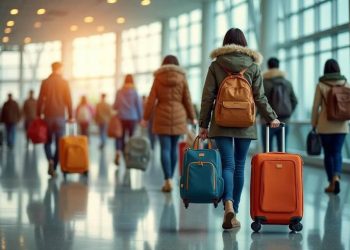Jakarta, Indonesia Sentinel — In a world driven by speed and instant gratification, the slow living lifestyle is emerging as an alternative for those who prefer a more deliberate, unhurried approach to life.
The rapid advancement of technology and consumer culture has created a high-pressure rhythm of life that often overlooks essential priorities. In response, movements like slow living encourage people to slow down, live mindfully, and focus on what truly matters.
Slow living emphasizes simplicity, relaxation, and an awareness of time and surroundings. According to Verywell Mind, the concept is often described as the art of living life at a calm “speed,” making time for what’s meaningful and taking deliberate, conscious actions.
It is not merely about reorganizing schedules or slowing down physically but also about cultivating a deeper connection with everyday activities, relationships, and self-care. This could mean stepping away from the relentless demands of work to enjoy small daily moments such as exercising, cooking, or spending time with family and friends.
However, adopting the slow living lifestyle is not without challenges. Career demands and financial realities make it difficult for many to fully embrace this approach. For those in fast-paced work environments with tight deadlines, slowing down may feel nearly impossible.
Instead of overhauling their entire lifestyle, individuals can start by making small, mindful changes to daily habits. Focusing on quality over quantity and prioritizing mindfulness can help ease the relentless pace of modern life.
Slow living also aligns with sustainable practices, encouraging a heightened awareness of the environment and efforts to minimize negative impacts on the planet.
According to Kompas.com, here are some practical examples of slow living:
- Reducing consumption and choosing high-quality, durable products.
- Limiting technology and social media use to alleviate stress and improve mental well-being.
- Preparing and enjoying meals mindfully, with greater attention to ingredients and preparation.
- Walking or cycling for daily activities instead of relying on vehicles.
- Taking more relaxed vacations and avoiding mass tourism.
The benefits of slow living extend beyond stress relief, it can significantly improve overall quality of life. By teaching individuals to be more intentional with their time and to manage pressure better, slow living offers a path to healthier living.
Jakarta Invests $260,000 in Weather Modification to Mitigate Heavy Rainfall
The fast pace of modern life often leads to chronic stress, fatigue, headaches, sleep disturbances, anxiety, and even depression. Adopting a slower, more deliberate lifestyle can provide a calming counterbalance, improving both mental and physical well-being.
For those feeling overwhelmed by the relentless rush, slow living offers a powerful reminder: sometimes, slowing down is the fastest way to live a fuller, healthier life.
(Raidi/Agung)

























